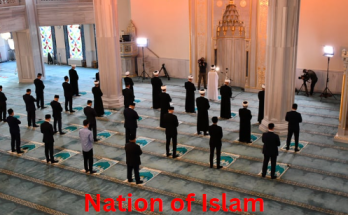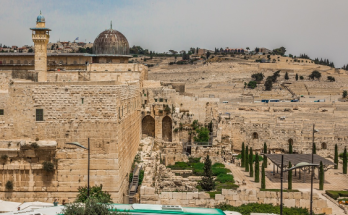الإسلام: الطريق إلى الوحدانية والهداية الإلهية
الإسلام هو دين عالمي يؤمن به المسلمون في جميع أنحاء العالم. يُعتبر الإسلام واحدًا من الأديان الرئيسية الثلاثة إلى جانب المسيحية واليهودية. ويُعتقد أن الإسلام تأسس في القرن السابع في الجزيرة العربية بواسطة النبي محمد صلى الله عليه وسلم.
يتم تعريف الإسلام بشكل رئيسي من خلال مفهوم التوحيد، أي الإيمان بوحدانية الله. ويُعتقد أن الله واحد، ولا يشرك به أحدًا، وهذا يُعرف باسم “لا إله إلا الله”، وهو الشهادة التي يجب على المسلم أن يعتنقها ليكون مسلمًا. بالإضافة إلى التوحيد، يتعامل الإسلام مع العديد من الجوانب الأخرى في حياة المسلمين، مثل العبادة والأخلاق والقوانين الاجتماعية والاقتصادية.
في الإسلام، يُعتقد أن القرآن هو الكتاب المقدس والكلام المباشر لله، وأنه أُنزل على النبي محمد عن طريق الملائكة. ويُعتقد أن القرآن هو الكتاب النهائي والمرجع الرئيسي للمسلمين في جميع جوانب الحياة. يحتوي القرآن على توجيهات وتعاليم دينية ومعايير أخلاقية وقوانين للعبادة والحياة اليومية.
وبالإضافة إلى القرآن، يوجد أيضًا السنة النبوية، وهي تعليمات وتوجيهات النبي محمد صلى الله عليه وسلم والتي تُعتبر مصدرًا هامًا لفهم الإسلام وتطبيقه. تُعتبر السنة النبوية مجموعة من الأحاديث والتعاليم والتصرفات التي قام بها النبي محمد، والتي تعتبر ملهمة وقدوة للمسلمين.
تعتبر العبادة أيضًا جزءًا مهمًا من الإسلام. تشمل العبادة صلاة الخمس المكونة من الصلاة، والصوم خلال شهر رمضان، والحج إلى مكة للمسلمين القادرين، والزكاة أو الصدقة، والتي تعني إعطاء المساعدة للمحتاجين والفقراء. العبادة تعتبر وسيلة لتعزيز الاتصال الروحي بين المسلم والله وتحقيق التقوى.
تشجع الإسلام أيضًا على التعايش السلمي والعدل والرحمة والتسامح والمحبة والإحسان. يجب على المسلمين أن يعيشوا حياة أخلاقية وأن يتعاملوا بلطف وعدل مع الآخرين، بغض النظر عن خلفياتهم الثقافية أو الدينية. يُعتبر الإسلام أيضًا أن الإنسان مسؤول عن أعماله وأنه سيحاسب على أفعاله في الحياة الدنيا والحياة الآخرة.
في النهاية، يُعتبر الإسلام دينًا يؤمن بالتوحيد ويشجع على العبادة والعدل والتعايش السلمي. يعتبر المسلمون القرآن والسنة النبوية مصادر هامة لفهم وتطبيق الإسلام في الحياة اليومية. الإسلام ليس مجرد دين فحسب، بل هو أسلوب حياة يؤثر في جميع جوانب حياة المسلمين ويعزز قيم الأخلاق والتسامح والعدل
Islam: The Path to Oneness and Divine Guidance
Islam is a universal religion believed by Muslims all over the world. Islam is considered one of the three major religions along with Christianity and Judaism. It is believed that Islam was established in the seventh century in Arabia by the Prophet Muhammad, may God bless him and grant him peace.
Islam is mainly defined by the concept of tawhid, i.e. the belief in the oneness of God. It is believed that God is one, and does not associate anyone with Him, and this is known as “there is no god but God,” and it is the testimony that a Muslim must embrace in order to be a Muslim. In addition to monotheism, Islam deals with many other aspects of Muslims’ lives, such as worship, morals, and social and economic laws.
In Islam, the Qur’an is believed to be the holy book and direct word of God, and that it was revealed to the Prophet Muhammad by way of angels. The Qur’an is believed to be the final book and the main reference for Muslims in all aspects of life. The Qur’an contains religious directives and teachings, moral standards and laws for worship and daily life.

In addition to the Qur’an, there is also the Sunnah, which is the instructions and directives of the Prophet Muhammad, may God bless him and grant him peace, which are an important source for understanding and applying Islam. The Sunnah is a collection of hadiths, teachings, and actions of the Prophet Muhammad, which are considered an inspiration and role model for Muslims.
Worship is also an important part of Islam. Worship includes the five prayers consisting of prayer, fasting during Ramadan, a pilgrimage to Mecca for able-bodied Muslims, and zakat or charity, which means giving help to the needy and poor. Worship is seen as a way to enhance the spiritual connection between a Muslim and God and to achieve piety.
Islam also encourages peaceful coexistence, justice, mercy, tolerance, love, and charity. Muslims are required to live ethical lives and treat others kindly and justly, regardless of their cultural or religious backgrounds. Islam also considers that man is responsible for his actions and that he will be held accountable for his actions in this life and the life to come.
Ultimately, Islam is a religion that believes in monotheism and encourages worship, justice, and peaceful coexistence. Muslims regard the Qur’an and the Sunnah of the Prophet as important sources for understanding and applying Islam in everyday life. Islam is not just a religion, but a way of life that affects all aspects of Muslims’ lives and promotes the values of morality, tolerance and justice


